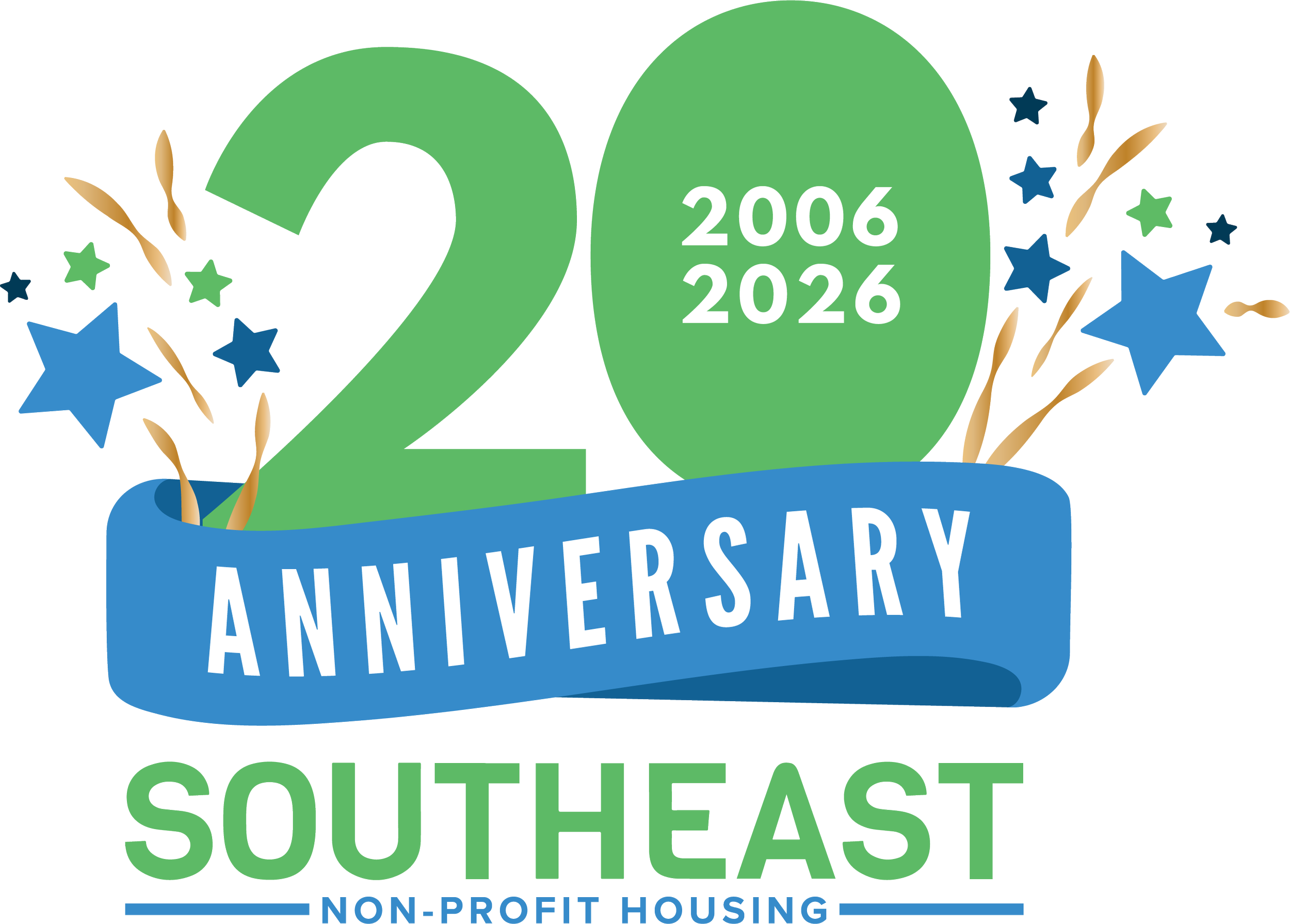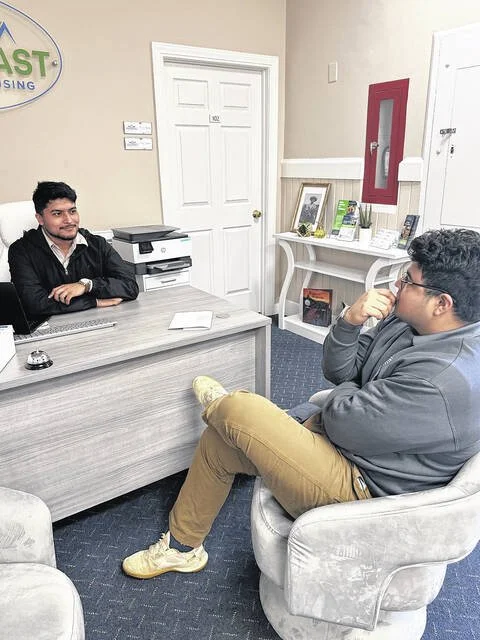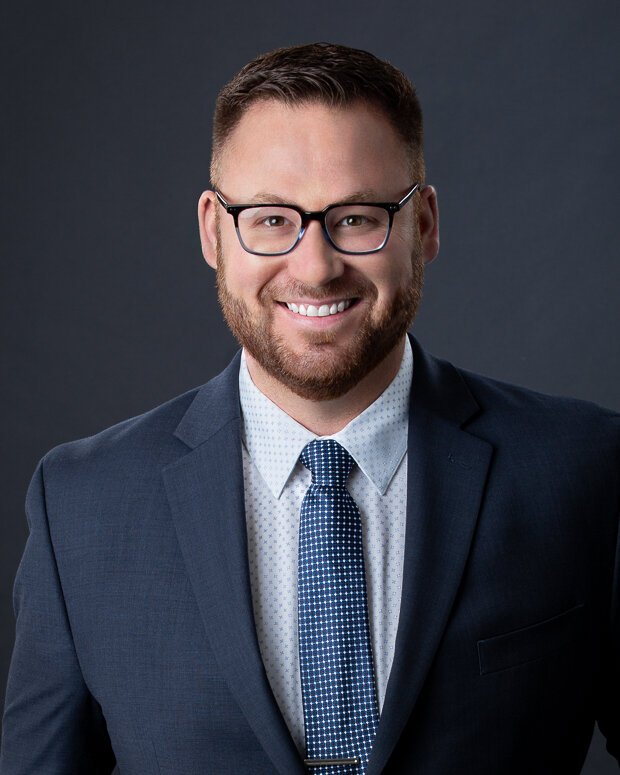
STAY CONNECTED
The latest SENPH news and updates
Southeast Non-Profit Housing Celebrates 20 Years of Service, Expands Reach Across the Region
Formally known as Alabama Non-Profit Housing Inc., the organization has expanded throughout the Southeast, rebranding as Southeast Non-Profit Housing Inc. (SENPH) to reflect its broader impact. This milestone coincides with the celebration of the organization’s 20th anniversary, marking two decades of advancing affordable housing and workforce development solutions for families. SENPH’s mission is to improve our communities by providing housing and workforce development solutions for families. Primarily focused in rural communities across the southeast, SENPH has 14 office locations in Alabama, Georgia, and North Carolina.
The vision for Southeast Non-Profit Housing Inc. began in 2006 with the development of a grant proposal that laid the foundation for the group’s first housing project. That vision culminated in 2011 with the opening of Casa Bonita , a ten-unit community in Oneonta, Alabama, funded by USDA Rural Development. Casa Bonita was the organization’s first completed project and remains a cornerstone of its mission today.
What began in Oneonta Alabama 20 years ago has now grown into a regional effort. The expansion into Georgia and North Carolina reflects both the growing needs of rural families and our ongoing commitment to providing housing, career development, and supportive services across the Southeast.
Building on its foundation of affordable housing initiatives, SENPH has also expanded its focus on workforce development with an emphasis on empowering farmworkers and their families. Through comprehensive career and training programs—including job placement support, work experience, and on-the-job training with local businesses—SENPH is working to increase access to economic opportunity and long-term stability across the region.
Vanessa Rico Featured on MIA 94.3 FM
Vanessa Rico, Career Advisor for the Greenville region, was recently featured on “El Tren de Tarde” on MIA 94.3 FM – Toda tu música favorita!, a station dedicated to serving, educating, entertaining, and integrating Latinos in North Carolina.
During the interview, Mrs. Rico shared an overview of the services provided through the National Farmworker Jobs Program (NFJP), offered by Southeast Non-Profit Housing. She discussed the program’s eligibility requirements, emphasizing the organization’s dedication to helping farmworkers and their dependents gain access to career development, emergency assistance, and housing resources.
“We are a non-profit organization that helps people who work in agriculture and their dependents.” said Rico
Southeast Non-Profit Housing remains committed to empowering farmworker families across North Carolina by connecting them to the resources, education, and opportunities they need to achieve long-term stability.
In the News: Local nonprofit offers help to agriculture workers
In a modest office just off the main drag in Clinton, a small team of young professionals is quietly reshaping the lives of Sampson County’s agricultural workers. They call themselves Southeast Nonprofit Housing, but for many of the county’s farmworkers and their families, they’re simply known as the people who show up when no one else does.
The organization, which began in Alabama as a small housing nonprofit before expanding into Georgia and North Carolina, is now rooted in one of the state’s most agriculturally rich counties. Its mission: to improve living conditions and career opportunities for those who plant, pick, pack, process, or otherwise handle the food that fuels the region.
“It’s very personal for me,” said Jessica Sanchez, the program development coordinator who leads the North Carolina team. Originally from Minnesota, Sanchez worked in Sampson County Schools before joining Southeast Nonprofit Housing. “Most of the families I served back then were agricultural workers. I loved advocating for them and for their children in their native language. When I saw this opportunity online, I thought, ‘This is what I’ve been called to do.’”
Southeast Nonprofit Housing still provides its original housing assistance: rental help, utility support, and repairs, but as of September 2024 it also offers career services through a Department of Labor grant. The new program helps farmworkers and their dependents enroll in training, earn certifications, and move into sustainable jobs.
For Sanchez, the shift has been powerful. “Some of the kids I helped in middle and high school are now walking through our doors as community college or university students,” she said. “That’s incredible. We’ve reached a broad audience in North Carolina, and Sampson and Duplin counties are two of our biggest service areas.”
A frequent misconception about the nonprofit is that it serves only Latino farmworkers. In reality, anyone who has worked in agriculture within the past two years, whether in the fields, on chicken or hog farms, at nurseries, or at processing plants like Smithfield or Butterball, may be eligible.
“Absolutely, this is for everyone,” Sanchez stressed. “Agriculture in North Carolina is broad. It’s blueberries and pine straw, cattle and chickens, plants and nurseries. As long as they’re touching raw produce or animals, they can qualify.”
Cristal Del Rio, the outreach specialist, spends her days spreading that message. “What I do is basically create and collect the intake applications and all the documents,” she said. “We’re trying to focus on local churches, Head Start programs, high schools — anywhere we can reach parents and workers. A lot of people still don’t know we’re here.”
Del Rio’s own story mirrors that of many clients. She once worked in pine production and struggled to afford basic home repairs until Southeast Nonprofit Housing helped her replace her flooring. “I didn’t really believe in the system,” she admitted. “But this company showed me there is hope. Now I work here so I can help other families feel that same relief.”
Inside the Clinton office, Edgar Sanchez, who is Jessica’s nephew, handles the housing side of the operation. He sees firsthand the difference between Southeast’s approach and traditional government assistance.
“We’re more personal,” he explained. “We sit down with each client, take our time, and get to know them. Many come to us as a last resort, and nobody likes asking for help. But we ask what’s going on in their household, not just what they need from us. That’s how we understand their real situation.”
That personal touch also means Southeast Nonprofit Housing can keep working even during times of uncertainty, like government shutdowns. “Our funding goes through grant cycles,” Edgar said. “As long as there’s no freeze, we keep helping people the same way.”
Edras Vargas, a 24-year-old career advisor, came to Southeast after working as a recruiter for the Sampson County Schools’ migrant education program. “It was really eye-opening,” he said. “I’d go into farmworkers’ homes and see families moving from Florida to North Carolina to New Jersey to Michigan. Kids were losing stability and falling behind in school.”
When the program lost funding, Vargas looked for another way to serve those families. “Here, we’re still helping farmworkers, but not just with housing. We’re helping them get training and find jobs that can sustain them,” he said.
The criteria for career assistance are straightforward: participants must be in some kind of training, whether a short-term certificate at Sampson Community College, a CDL program, or a bachelor’s degree at a university. “We want to transform lives from being limited to just agriculture,” Vargas said. “We want to help them spread their wings.”
Young Leaders with Deep Roots
One striking thing about the Clinton team is their age. All four core staffers are under 30. Yet each carries a personal connection to the work.
Vargas was drawn in by the educational struggles he witnessed. Del Rio was once a client herself. Edgar Sanchez grew up working alongside farmworkers and understands their pride and challenges. And Jessica Sanchez, though originally from Minnesota, built her career advocating for farmworker families in Sampson County Schools.
For all of them, it’s about more than just a job. “Helping people kind of just feels rewarding,” Vargas said. “Just hearing a thank you, it hits different.”
Southeast Nonprofit Housing currently has funds to assist at least 85 people with permanent housing and hopes to double or triple that number in the next grant cycle. The team is also joining local chambers of commerce and reaching out to schools, churches, and county leaders to expand awareness.
“Our goal is to serve as many people as possible,” Jessica Sanchez said. “These are hardworking North Carolinians who are absolutely deserving of this assistance.”
She believes features like this one can help break through the word-of-mouth barrier and reach farmworkers who may not yet know they qualify. “We have a large Spanish-speaking population, but there are so many others — domestic workers, non-Latino farmworkers, who could benefit from our services,” she said.
At the end of a long day, the staff often reflects on the ministry-like nature of their work. “We’re friends, we’re advisors, sometimes we’re even psychologists,” Vargas said with a smile. “Some people just want to be heard.”
They hope their example shows the wider community that collaboration across lines of race, nationality, and background is possible, and necessary. “We don’t have a specific race or gender,” Vargas said. “We want to make sure that anybody who seeks help actually gets that help. Action speaks louder than words.”
For a county built on agriculture, that message resonates deeply. Sampson County may be the largest county in North Carolina, but for farmworkers who often feel invisible, Southeast Nonprofit Housing is making it feel a little more like home.
In the News: Coffee County Youth Coalition Newsletter
Partner Spotlight: Jessica Rios & Southeast Nonprofit Housing (SENPH)
Click to get a better look at the newsletter
Jessica Rios serves as a Career Advisor with Southeast Nonprofit Housing (SENPH), where she supports farmworkers and their families across Georgia through carer advising and case management. In her role, Jessica helps participants identify their strengths, set achievable goals, and connect with resources and training opportunities that lead to long-term success.
She also works closely with community partners and employers to expand opportunities and break down barriers for those she serves. SENPH is a community-based nonprofit dedicated to improving the lives of farmworkers and their families through education, workforce development, and supportive services. As the local provider of the National Farmworker Jobs Program (NFJP), SENPH offers employment and training opportunities, rental and transportation assistance, and career guidance tailored to each participant’s needs. Guided by its mission to create pathways to self-sufficiency, SENPH empowers individuals and strengthens communities through opportunity, training, and support. Thank you, Jessica, for all you do!
In Remembrance: Ms. Barbara Mosley
Southeast Non-Profit Housing is sorry to announce the loss of our Director of Strategic Initiatives, Ms. Barbara Mosley.
Ms. Barbara Ann Marie Mosley, age 62, entered into rest Saturday, March 1, 2025, at the Candler Hospital, Savannah, Georgia.
Barbara was born to the union of the late Charlie Mosley and Bernice Mae Thelma Riggs Mosley on November 7, 1962. She was the third child born to this union. Barbara attended the Willow Hill Elementary School and Portal High School in Bulloch County, Georgia. She graduated from Portal High School in 1980 and attended Georgia Southern College which is now Georgia Southern University. Barbara began working for the Telamon Corporation in April 1988 and her career would expand over 35 years.
Barbara worked in various positions with Telamon, starting as a case manager and ending her career in 2023 as a deputy director. She managed program operations in the states of Georgia, South Carolina and Alabama. Barbara was well known throughout the National Farmworker Jobs and National Workforce Boards.
Barbara received many recognitions over the years for participation in Regional Economic and Leadership Development Programs. Some of the boards she served on are: Middle Georgia Consortium Workforce Development, Delta Association of Rural Initiative (DARI), Association of Farmworker Opportunity Program (AFOP) and Eastern Regional Alliance of Farmworker Advocates (ERAFA). She started her career in Statesboro with Telamon but would later move to Dublin Georgia to work for Telamon after receiving a new position.
Barbara made a career change and began working for Southeast Non-Profit Housing Inc. in September of 2024. She was hired as Director of Strategic Initiatives and reported to CEO, Mr. Jacob C. Rogers. Barbara was excited to join this organization and have the opportunity to help grow the organization. She was employed by Southeast Non-Profit Housing until her passing. Barbara joined the Banks Creek Primitive Baptist Church at an early age under the leadership of the late Elder James J. Grant. Upon moving to Dublin, she began attending church at New Vision Missionary Baptist Church and later joined New Vision under the leadership of Pastor Horace Austin.
US Department of Labor Awards $6.5M in grants to support delivery of temporary, permanent housing services to farmworkers, dependents
The U.S. Department of Labor today announced the award of $6.5 million in National Farmworker Jobs Program Housing Services Grants to help seven organizations in eight states ensure migrant and seasonal farmworkers and their dependents have proper housing solutions.
While seasonal and migrant farmworkers are essential to the nation’s agriculture industry, many live in poverty and face substandard living conditions, overcrowding and lack basic amenities. The NFJP Housing Services Grants will enable seven recipients to develop and use creative solutions to offer farmworkers and their families access to affordable, safe and sanitary housing.
Administered by the department’s Employment and Training Administration, the NFJP Housing Services Grants announced today will support delivery of permanent and temporary housing services in eight states with at least 70 percent of funding for permanent housing.
NFJP Housing Services Grants are authorized by the Workforce Innovation and Opportunity Act. The grants aim to facilitate the delivery of housing solutions that respond to the immediate and near-term needs of eligible migrant and seasonal farmworkers and their dependents.
Learn more about the department’s National Farmworker Jobs Program.
US Department of Labor Awards Nearly $5 million to local nonprofit focused on workforce development and housing
We are thrilled to announce that the US Department of Labor has awarded ANPH with the National Farmworker Jobs Program Career Services & Training grants for Alabama, Georgia, and North Carolina. Funded at nearly $5 million per year, the program focuses on improving skills for better employment opportunities for workers and filling in-demand jobs for employers.
At Alabama Non-Profit Housing, Inc., our mission has been to provide decent, safe, sanitary, and affordable housing to farmworkers throughout the southeast. We are excited to expand our mission to include Workforce Development and Career Services and Training to our mission.
It is important to note that outside of Alabama, our organization operates under the name Southeast Non-Profit Housing, Inc. (SENPH). While the name may differ, our commitment to service remains steadfast across all regions.
ANPH Board Chairman, Jerry Reaume, said, “We are incredibly excited for ANPH to offer Career Services to people throughout Alabama, Georgia, and North Carolina! Over the last four years, we have served more than 4,000 people with housing services throughout our six-state service area.”
CEO, Jacob Rogers, said, “Focusing on Career Services & Training will provide the quality workforce that companies are looking for today and moving into the future!”
For more information, contact us at 919-390-1827 or visit our website at www.senph.org.
SENPH Profile: Silvia (Garland, NC)
This is Silvia. She is poultry farm worker from Garland, NC. Silvia is a single-mother of four girls and the sole care-taker of her elderly mother. She heard about our program through a family friend and decided to apply. Her kitchen needed to be upgraded because the floors were sinking in and the walls were falling apart.
Our program was able to help her completely remodel her kitchen. Her excitement and gratitude of picking out her preferred colors, cabinets, and floors made this particular project such a pleasure to complete! Her mother is back to cooking in a safe kitchen and the family is back to eating all together at a dinner table!
“Mi cocina se estaba cayendo, ahora gracias a este programa temenos una cocina en la que todas podemos cocinar y comer bien agusto. Es mi lugar favorito en la casa!”
“My kitchen was falling apart, now thanks to this program we can all cook and eat comfortably. It is my new favorite part of the home!”
Reynolds American, Inc. makes a large donation to expand farmworker housing program in NC
At Southeast Non-Profit Housing, Inc., our mission is to provide decent, safe, sanitary, and affordable housing to farmworkers in the southeast. We accomplish this through funding provided by the US Department of Labor’s National Farmworker Jobs Program - Housing. SENPH provides funding for improvements to farmworker housing in North Carolina and five other southeastern states. Since 2020, SENPH has helped improve the living conditions of over 4,000 farmworkers and members of their families in the southeast.
Jacob Rogers
We are thrilled to announce that Reynolds American, Inc. has donated $50,000 to expand our farmworker housing program in North Carolina. This funding will help farmworker families in North Carolina by providing matching funding to make improvements and upgrades to housing units owned or occupied by farmworkers and their families.
SENPH CEO, Jacob Rogers, said, “We are excited to be able to help more farmworkers in North Carolina due to the generous support from Reynolds American, Inc. Over the last three years, we have helped more than 3,000 farmworkers and their families in North Carolina with much needed housing improvements such as roof replacements, kitchen and bathroom remodels, flooring repairs, and much more. We appreciate Reynolds’ commitment to the agricultural workers in North Carolina!”
Our first community: Casa Bonita
We’ve worked with thousands of farmworkers and their families to improve living conditions. Whether providing technical assistance to organizations to develop housing or providing a grant for repairs and upgrades, we’ve partnered with many organizations and individuals to provide safe, decent, and affordable housing to the Southeast’s farmworkers!
Built in 2011, Casa Bonita is a ten unit community in Oneonta, Alabama. Funded by USDA Rural Development, this community provides long-term leases to individuals and families who work in agriculture, retired from agriculture, or disabled from agriculture.
>> At our apartment community, we’ve housed over 100 families over the last 10 years.














